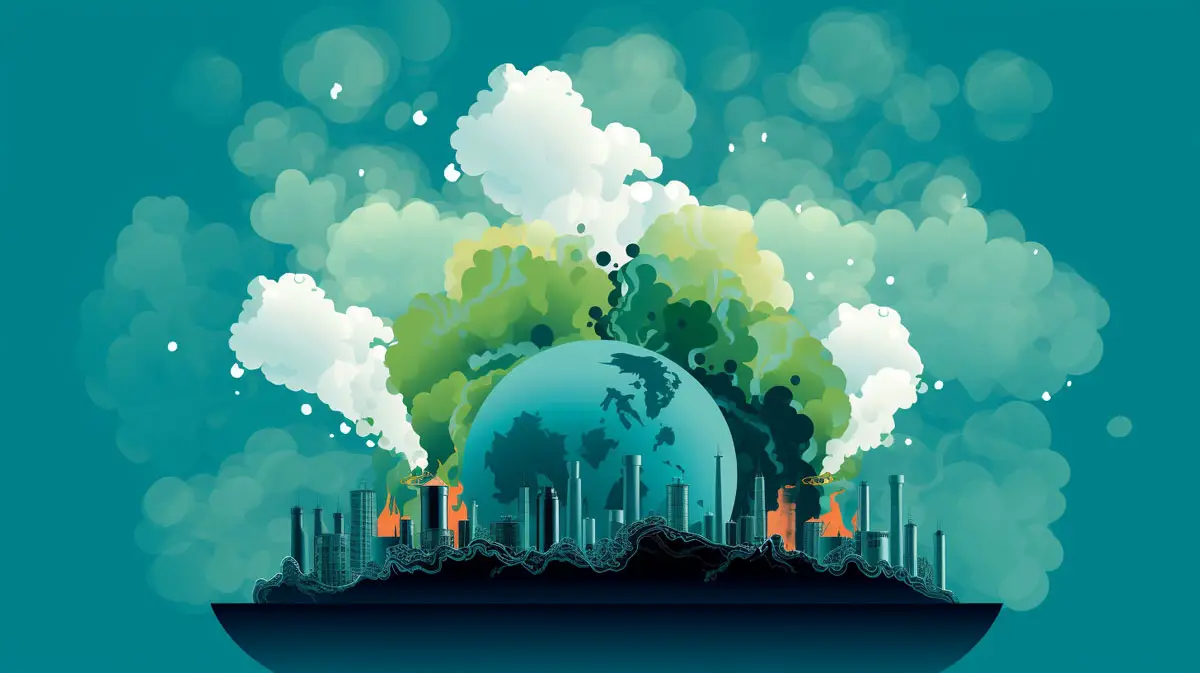Pollution Responsible for Millions of Deaths Worldwide, Experts Warn

A recent study has found that pollution is responsible for one in six deaths globally, accounting for an alarming number of fatalities every year. The study, conducted by The Lancet Commission on Pollution and Health, estimated that around 9 million people die every year due to pollution. This is almost double the number of deaths caused by AIDS, tuberculosis, and malaria combined. The study also revealed that pollution is the largest environmental cause of disease and death worldwide.
The effects of pollution are felt acutely in developing countries, where industrialization and economic growth have come at the expense of the environment and the population’s health. In countries such as China and India, pollution has reached crisis levels, with hazardous levels of air pollution contributing to respiratory diseases, heart attacks, and stroke. However, developed countries are by no means immune to pollution, with the United States and Europe also at risk from air pollution and toxic chemicals.
The Study’s Findings
Pollution affects every aspect of human life; from the air we breathe and the water we drink to the food we consume. The study identifies air pollution as the leading cause of pollution-related deaths, followed by water and workplace-related pollution. Air pollution is more prevalent in urban environments, especially in cities where traffic congestion and industrial emissions contribute to high pollution levels. On the other hand, water pollution is often caused by industrial and agricultural waste that contaminates water bodies, causing waterborne illnesses and diseases.
In a shocking revelation, researchers have calculated the immense economic impact of pollution deaths to be a staggering £3.61 trillion. In perspective, this equates to approximately £7.07 million lost every minute. Furthermore, despite the first global review in 2017, which shed light on the detrimental effects of pollution, the overall impact has failed to improve. Tragically, during this period, we have witnessed the loss of 45 million lives due to pollution-related causes.
What is truly alarming is that prevention measures have been largely overlooked in the international development agenda. Funding has increased only minimally since 2015, highlighting the urgent need for action. The report also discovered that exposure to pollution, no matter how low the levels, can lead to serious health problems such as heart disease, lung cancer, and strokes.
Furthermore, other reports highlight that children are the most vulnerable to the harmful effects of pollution. Exposure to pollution can cause developmental delays, cognitive impairment, and behavioural problems, affecting a child’s quality of life.
What Now?
These statistics are staggering, and the study’s implications are a call to action. It is evident that pollution is a severe public health issue and needs urgent attention from governments and individuals worldwide. The study emphasises that pollution is not just an environmental issue but a health and social concern, too.
The Lancet Commission’s report calls for urgent action to reduce and eliminate pollution globally. It urges nations to establish strict regulations to limit pollution exposure, invest in clean energy, and support innovation in clean technologies. Individuals can also significantly reduce pollution by making minor changes like using public transportation and switching to cleaner energy sources like solar and wind. They could also look into filing a diesel claim if they own a car with an emissions-cheating device via https://www.emissions.co.uk.
Diesel claims are legal actions against manufacturers producing diesel vehicles that exceed legal emissions limits. These claims stem from using defeat devices that manipulate a vehicle’s emissions control system during specific circumstances, like laboratory testing. The result is false readings that falsely demonstrate compliance with regulations. Diesel emissions claims aim to secure compensation for damages caused by these devices, including decreased vehicle value and increased health risks from exposure to pollutants. With the growing focus on the environmental impact of transportation, these claims are becoming increasingly prevalent, leading to a rise in cases filed against major automakers, with the most popular being Volkswagen.
Finally, collaboration among different sectors, communities, and individuals can also help mitigate the impact of pollution. Local authorities, non-governmental organisations (NGOs), and communities should work together to raise awareness and develop environmentally sound practices. For example, education programs for proper waste management, water management, and energy conservation should be developed and widely disseminated. Individuals should also be encouraged to adopt more sustainable lifestyles, such as using public transportation, reducing single-use plastics, and recycling.
Conclusion
The Lancet Commission’s report on pollution and health is a wake-up call to governments and individuals worldwide to take significant action to address the pollution problem. The statistics from the report are concerning, and pollution needs urgent attention to avert the looming health crisis. Individual actions and government regulations are necessary to achieve cleaner air and reduce pollution. By adopting clean-energy solutions, improving public transportation, strengthening pollution regulations, and engaging the community, we can all work towards reducing pollution levels and improving public health. We must act fast to meet this urgent public health challenge.










